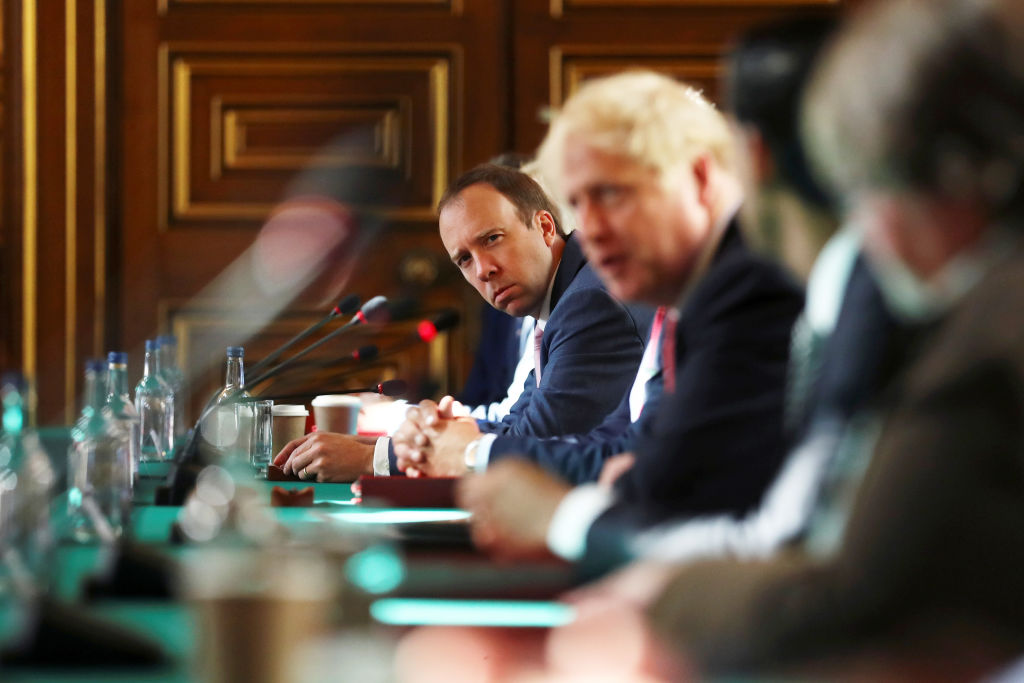Jack Kennedy’s 1961 declaration ‘We choose to go to the Moon’ was treated with a little more enthusiasm than Boris Johnson’s ‘Operation Moonshot’ pledge this week. Both caused eyebrows to be raised, on cost and practicality. But the former was done, eight years later; the later is, at best, a work in progress – at worst, it is just another pipe-dream.
The siren voices, some better informed than others, have already dismissed it on scientific and economic grounds. Others say, like Lenin and the Duke of Windsor, that ‘something must be done’ to scale up rapid and reliable testing if we are to avoid losing a race somewhat more pressing and more vital than the space-race of the 1960s.
What worked for Kennedy were three things: a national purpose, limitless credit and Eisenhower’s ‘Military Industrial Complex’. Somewhere out there, in the jungle of negativism, fear and scepticism, remains a national purpose to make the nations of the UK safe from coronavirus.
Rishi Sunak has demonstrated that credit, while not technically limitless, has a current elasticity never seen before, outside of war. Which brings me to the third. It has struck me from the outset that the weakest link in the struggle against coronavirus is not so much scientific or political as managerial and logistical. Politicians have to balance so many conflicting demands and petty pressures. Competition between individual ministers, and political parties, is as much at play in the great game of defeating or containing Covid-19, as anything else.
Scientists are competitive creatures, too, with their own power-plays. Some of those have extraordinary provenance in personal relationships; others are purely theoretical. Either way, there are distractions and divisions aplenty. Business tends to have the singular purpose of getting things done as efficiently as possible, and at a profit.
There have been remarkable moments like the Nightingale Hospitals, where that which was deemed necessary was done, and rapidly. The cooperation between the universities and the big ‘Pharmas’ on seeking a vaccination has been exemplary. And on ventilators, businesses – from Dyson to McLaren F1 and Mercedes AMG – have stepped forward with design and manufacturing agility seldom seen before.
Covid’s War Room, however, has remained dominated by a mix of politicians, scientists, statisticians and public health types. Other areas of expertise are drawn in, here and there. David Davis MP said on ITV’s ‘Peston’ that he found the PM’s ‘Moonshot’ exciting but feared it wouldn’t happen because of a confusion over capacity, bottle-necks and logistical management.
It may be that the PM and the Health and Care Secretary have summoned the masterminds of manufacturing and distribution to Downing Street to hatch a master-plan. If they haven’t, perhaps they should. In the crises of my youth, a common cry from my parents’ generation was ‘If only the Chair of ICI was running things’. There are clearly democratic pitfalls to this but it speaks volumes to a key challenge.
Few in Government have experience in business. Scientists are more of the academic than the commercial world. Big pharma, on the other hand, works because boffins do the ‘boffinery’ and entrepreneurs do the business bit. Having made his Moon claim, Kennedy let NASA and the aerospace giants get on with it. There is an argument for ministers to set the ambition and then give business free rein to get it done.
Much of this comes from a conversation I had this week, over coffee, with a friend of mine who has made several fortunes in business. He agreed with the thesis but expanded on it, too. His most striking foot-note was to suggest that there was an added bonus: if ministers handed over the testing challenge to business they could concentrate on post-Brexit matters.
That, in his mind, included a proper focus on education – secondary and tertiary – to prepare the generation who would pick up the challenges facing a post-Brexit UK. He wanted more entrepreneurs, inventors and risk-takers. Hard to argue with him on the need.
He ended saying, ‘Who knows? We might even produce some would-be politicians who know a real challenge when they see it and have the wit to hand it over to people who can meet it’.
Can Moonshot get off the ground? If it’s left to the politicians, maybe not. But in the right hands, Boris’s plan to escape from this Covid nightmare could be possible.






Comments